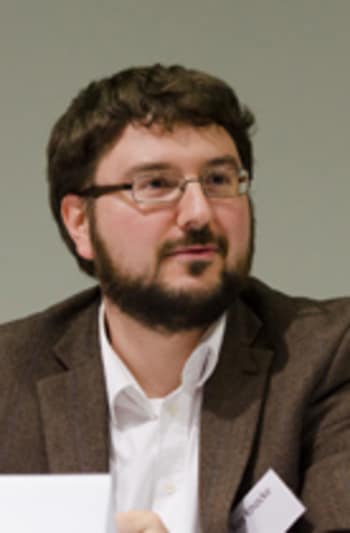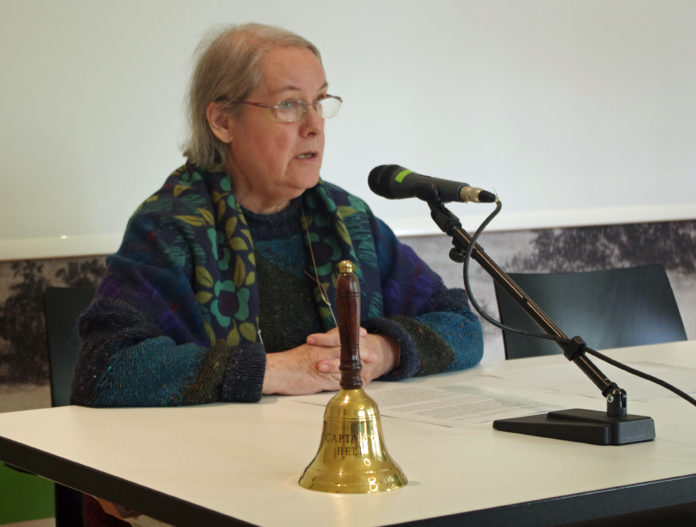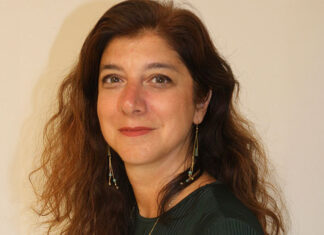BERLIN — Denial has been identified as the last stage of every genocide. Why, despite the testimony provided by ample documentation, are these crimes against humanity so stubbornly disputed? What are the reasons for such a defensive posture? What forms does denial assume? And how can this defensive posture be overcome?
These are the questions posed by the organizers and treated by a group of experts at the historic Lepsiushaus in Potsdam, near Berlin, during an interdisciplinary conference on November 5, entitled, “Genocide and Denial.” Co-sponsored by the human rights organization, Working Group on Recognition – Against Genocide, for Understanding among Peoples (AGA), and the Activists against Racism, Nationalism and Discrimination (AKEBI), the day-long gathering represented the continuation of discussions begun in January 2022 on the theme of genocide and denial. As AGA chairwoman Dr. Tessa Hofmann explained, this conference aimed at developing the concept more deeply, with contributions by experts on the juridical and psychological aspects of genocide denial.

Following greetings by Dr. Roy Knocke, director of the Lepsiushaus, Hofmann, sociologist and genocide researcher, delivered the keynote address on “Freedom of Opinion or Protection of Genocide Denial: Experience from Human Rights Activities.” Genocide denial, which appears in various forms, deserves merits legal punishment; yet the matter is problematic, in that penalization creates conflictual tension with the fundamental right, recognized in the German Constitution and other basic law, the right to freedom of opinion and expression. Hofmann traced attempts in France to expand the 1990 Gayssot Law, which penalized denial of crimes against humanity, especially the Holocaust, to include the Armenian genocide. In 2006 and 2011-2012, initiatives in this direction failed, largely due to political pressure from Turkish threats.
In 2008 the AGA presented an initiative to the German Bundestag (Parliament), inspired by the French motions, calling for extension of penalization of Holocaust denial (1994) to include genocide against the Armenians and other Christian minorities in the Ottoman Empire. That petition was rejected in 2012 on grounds that the German legal position already conformed to a European Union Commission Framework Decision passed in 2007, on combating racism and xenophobia. The EU decision foresaw penal provisions regarding racist or xenophobic hatred, open approval, denial or gross trivialization of genocide, as well as crimes against humanity and war crimes. Hofmann said, the EU disagreed, insisting that the German legal position did not conform to EU norms, and initiated an infringement proceeding at the end of 2021. Now, on October 20, just weeks prior to the Potsdam conference, German legislators complied, by inserting a new clause into Paragraph 130 of the German criminal code. As Hofmann explained, it now renders punishable by law the “public approval, denial and gross trivialization of genocide, crimes against humanity and war crimes, if the act is committed in a way that is likely to incite hatred or violence and to disturb public peace.”
Citing controversial responses in the political arena and press, Hofmann remarked, “The dispute about freedom of opinion has not thereby been settled, however.” Nonetheless, she expressed her happiness as a human rights proponent with the expansion of the provision, which she hopes will contribute to alleviate the pain of denial.
And juridical parameters defining criminal prosecution are not the only aspects of genocide denial discussed in Potsdam. In addition to further presentations, by Dr. Gurgen Petrossian (Erlangen) on “Genocide Denial from the Perspective of International Law,” and Nihat Kentel (Berlin) on “Overcoming Denial in the International and National Context,” the psychological, subjective dimensions were the subject of careful analysis. Dr. Melanie Altanian, research assistant at the School of Philosophy, University College (Dublin), dealt with “Denial, Misrepresentation and Epistemic Oppression,” and Dr. Angela Moré, professor of social psychology at Leibniz University (Hannover) and co-founder of Group Analysis Institute GIGOS, presented a lecture on “Denial of Crimes against Humanity – Motives, Mechanisms and Consequences.” The conceptual debate that unfolded among these participants will be the subject of the second part of this report next week.








